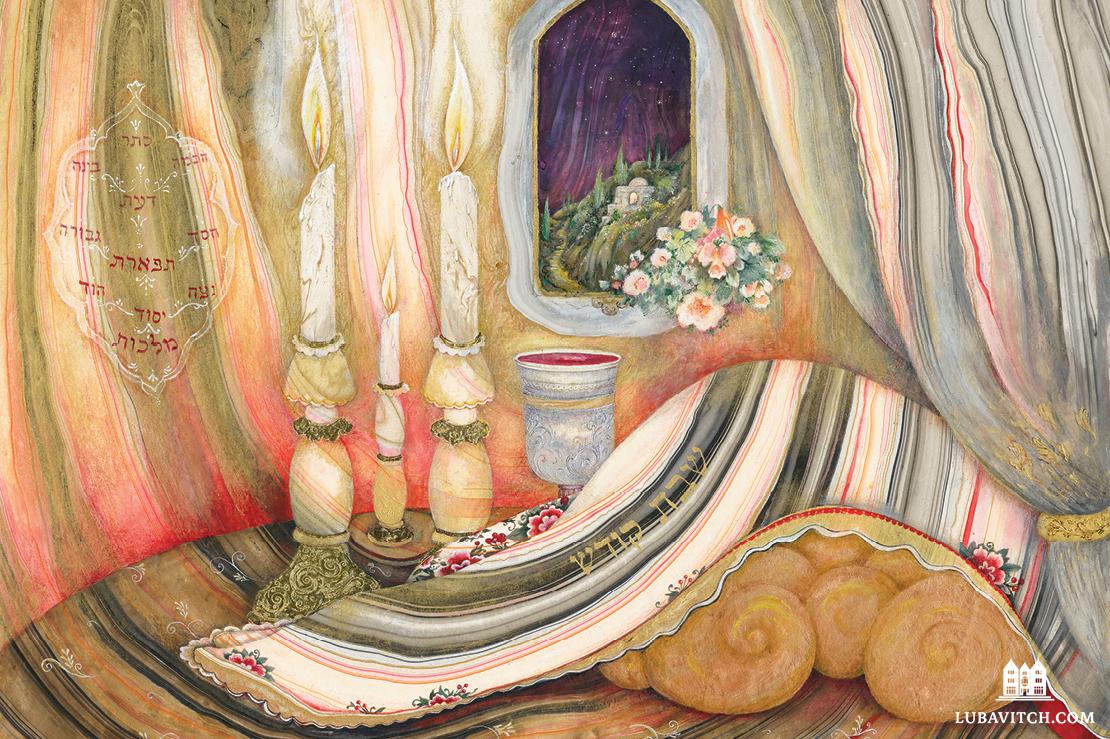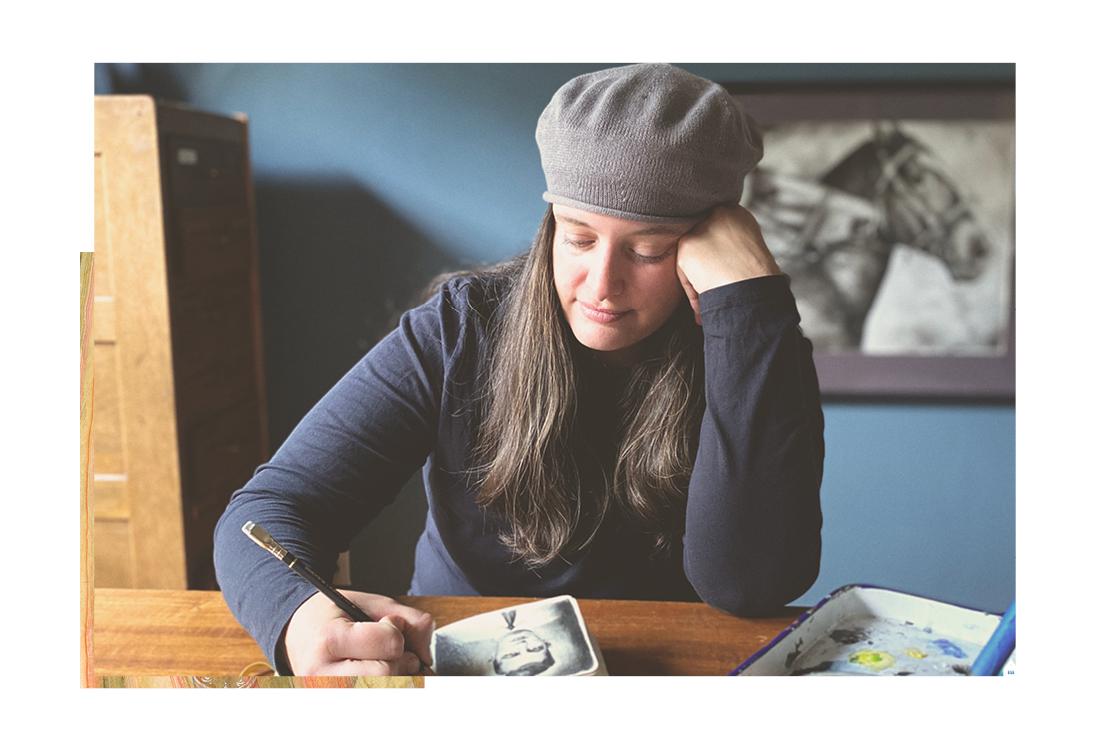“My zaidy called it ‘di heiliger Shabbos’ (the holy Shabbos); my father called it the Shabbos; I call it ‘the Sabbath,’ my children call it ‘Saturday,’ and my grandchildren call it ‘the day before Super Bowl Sunday’.”
This pithy anecdote describes a tragic trend among Jews who came over from the Old World and failed, for whatever reason, to transmit di heiliger Shabbos to the younger generation. It tells of its disappearance not only from the lived experience — but also from the lexicon — of Jews who have assimilated into secular culture.
But Shabbos is embedded in the Jewish soul. Some people hold on to it at all costs, while others come back to it after generations of nearly losing it. These are the personal Shabbos stories of an eclectic group of influential personalities.
Part 5/7
Rifka Chilungu
I was born to a Catholic father and a Methodist mother in a small town in Ohio. My dad wanted to call me Gretchen. My mom put her foot down and I became Emily. I went to a Catholic school and did the whole thing: church on Sunday, confession, fish on Friday. Until I was 19, I never thought about Judaism, had never met a Jew.
Two decades later, I’m Rifka now and Judaism anchors my life. Shabbat anchors my week.
Once I knew that I wanted to become Jewish, I started to learn about the laws and customs and history of this tiny people. I found that the transition, like all changes, had its challenges. But one of the greatest challenges was not being permitted to fully keep Shabbat.
It was very hard. I wasn’t part of this world or that world. The world I wanted to get into, I couldn’t. But I also couldn’t go back to the world I had come from. It was very painful knowing that I had to break Shabbat, that I wasn’t really experiencing what these people around me were experiencing. It made me feel like the Other.
One Friday night, I attended a Shabbat dinner. There were several hundred people gathered in the multi-purpose room of a big synagogue. It was a couple of weeks before I converted. Suddenly, the lights went out. The rabbi very delicately asked, “Does anyone know of a way that we can get the lights back on?” I was never embarrassed of being a convert. But it was still one more reminder that I was not with my people yet. I raised my hand slowly, “I’m a Gentile, show me the fuse box.”
I was glad to help, but it was one more reminder, “You’re not there yet.”

Once I did convert, I realized that the battle was over but the fight was still ongoing. When you’re converting, everything is a fight. You’re fighting your past life, you’re fighting the people you love, you’re fighting to prove yourself to the rabbis, you’re fighting to prove to yourself that you’re not nuts and this is really what you want.
And then you get there. Shabbat is mine now. Even something as spiritually powerful as Shabbat can easily start to become routine if you let it! And I have to keep myself aware of how wonderful this is. That’s the fight now. I was not expecting this fight. And I’ve been Jewish for twenty years.
Friday night at the table, we relax. We have four children; the oldest is sixteen and the youngest, seven. The worries and stresses of the week, which seem insurmountable, melt away. This is the real thing, existing as a Jewish family — talking about G-d or Israel or sharing words we learned in school. My husband learns with the kids one-on-one, and they become the center of Shabbat for us. We allow them to just be. They are different kids on Shabbat.
My Shabbat table is a mix of the different tables and families I visited over the years during my conversion process. But if I had to pick one family’s table that I most enjoyed, it was the Hoens of Cleveland. They were so open and so welcoming. If I remember correctly, I had a shaved head when I met them. They took a chance on me. Their table was filled with laughter and stories and no pretension.
I want a table where people can relax and feel at peace and accepted. It doesn’t matter who you are, or if twenty minutes ago you were eating a cheeseburger. You’re welcome at our house. I think that’s the way it’s supposed to be. We are in this together, we’re a family.
Rifka Chilungu lives in Rochester, New York with her husband, Shalom, four children, and dog. She teaches art at the local Jewish girls’ high school, kayaks and hikes, and occasionally writes and speaks for Jewish audiences.
This article appeared in the Fall 2021 issue of the Lubavitch International magazine. To download the full magazine and to gain access to previous issues please click here.

Patty Arnold
Dear Rifka. I love your story. You are amazing and so powerful. I wanted to share a thought I had when you said :Shabbatis mi n e now”. I think Shabbat was akways “yours”. Our spiritual self, our soul is everlastingly with Hashem and so your soul was perhaps always Jewish; everything including Shabbat has always been yours. And Hashem placed us in this physical world of challenges. In this social, emotional world of mankind to overcome these challenges to bring together our existence we are born into on earth with the soul and G-dliness of heaven. You are the perfect example of what Hashem’s plan might be for all his human crration. Your beautiful life, your candle on this world, IS Shabbas.